Ghostbusters Afterlife review: An empty attempt to placate old fans

When the 2016 Ghostbusters movie came out, the discourse around remakes and gender-swapping of roles was renewed. Commenters abandoned finding a nuanced opinion somewhere in between 'this movie is terrible' and 'this movie is ground-breaking', in part because the people behind the film were being trolled on social media and the film was being 'review bombed' by "fans" on sites like Rotten Tomatoes and IMDB before it was even in cinemas.
Whether you thought the film was good or not is almost neither here nor there. Because what's here is the 2021 long-delayed sequel, Ghostbusters: Afterlife, which has positioned itself (whether purposefully or unintentionally and by circumstance) as the antithesis to the 2016 film.
Helmed by Jason Reitman, son of original Ghostbusters director Ivan Reitman, the new version focuses on the grandchildren (Finn Wolfhard as Trevor and Mckenna Grace as Phoebe) of Egon Spengler, and their mother Callie (Carrie Coon), who inherit Egon's barn and discover the wealth of ghost activity he was trying, on his own, to ward off.
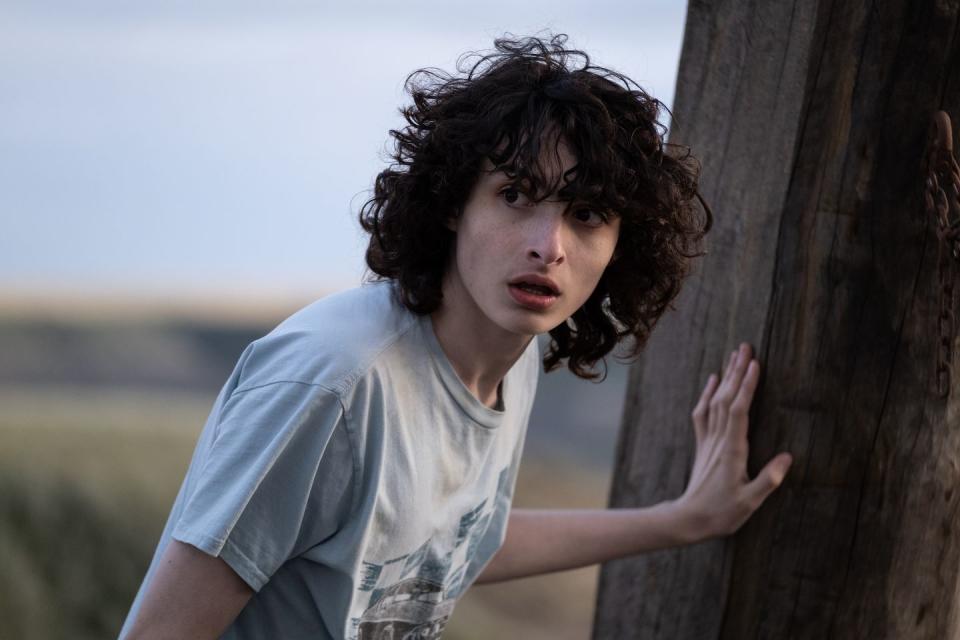
Afterlife is supposed to be about family and legacy, about finding your place in the world, but what it really feels like is the placating smile you have to put on when your drunk relative makes a scene at Christmas dinner. You suffer them because they're family, but you don't necessarily enjoy it.
The characters themselves feel like someone pressed 'random' on a diversity generator tool, cropping up with a combination of box-ticking traits, rather than organic character developments that feel real and purposeful to their overall arc and the plot. There are times when putting the emotional and narrative weight of the story on the shoulders of kids works; Ghostbusters Afterlife is not one of them.
This isn't necessarily the fault of the actors, but rather of a clunky and Easter-egg laden script that only sometimes manages a chuckle, never a guffaw. Paul Rudd does his best to lighten the mood, but every gag goes on too long, each one an extended wink at the audience.
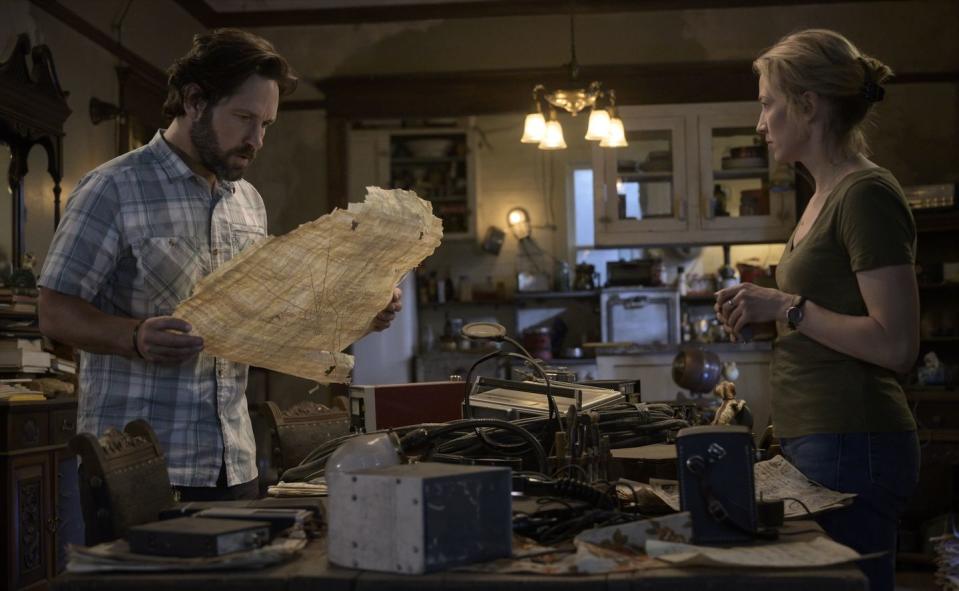
Fans of the original may be pleased by the wealth of references to the film, but without a heart of its own Ghostbusters: Afterlife sinks under the weight of its predecessor while trying desperately to emulate it.
People may point to Star Wars: The Force Awakens as a film that repeated the beats of its progenitor (A New Hope) in defence, but what The Force Awakens did in the way it repeated those beats was to point out the cyclical nature of humanity, of power and corruption. Ghostbusters: Afterlife has nothing to say beyond 'Hey, remember this?'
As an attempt to draw new kids in and remind audiences that anyone can be a ghostbuster, Afterlife falters too. Yes, it was refreshing to see a diverse cast on screen (something we can't believe we're still saying in 2021) but as we've said before, simply casting diverse actors does not make a film progressive — in the same way that simply casting women as ghostbusters doesn't make it feminist.
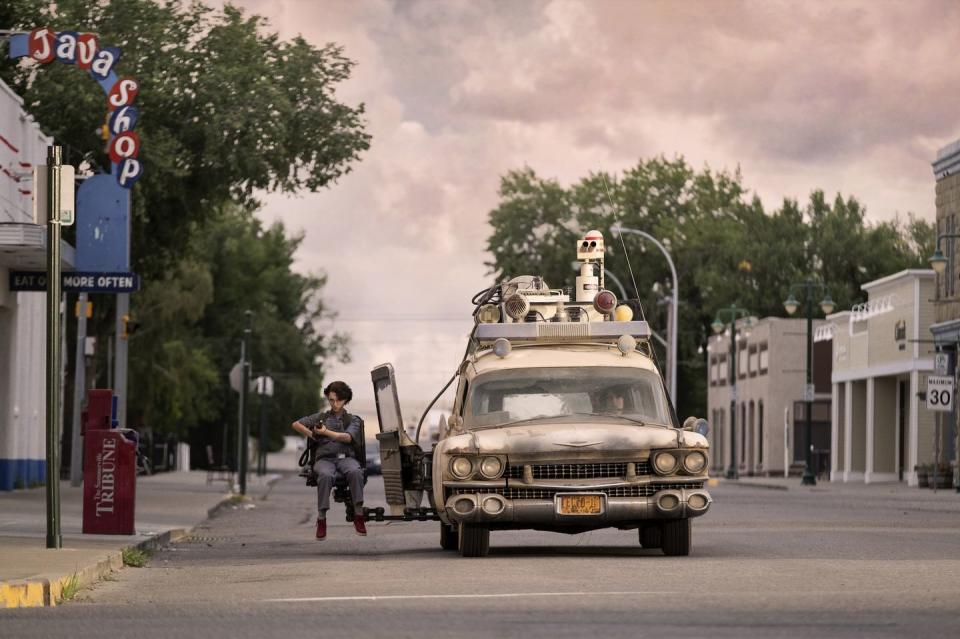
Celeste O'Connor does their best job at fleshing out the entirely 2D 'love-interest / trapped townie' Lucky, while Logan Kim brings charm to the (we can't believe we're writing this) character named Podcast (no, he never gets a real name) whose entire schtick is being into podcasts. Duh.
The original Ghostbusters film was for adults – the humour was raunchy in spots and grown-up enough that it holds up to time, rewatch after rewatch. And while adults can find comfort and meaning in kids films (hello, Pixar?) Afterlife is too busy with a convoluted plot that tries to tie it to its previous legacy to let its story breathe.
In a preamble to the screening this journalist attended, Jason Reitman describes working with his father over his shoulder, and makes a quip about what it would be like for one of you to take your parents to work. My father was a writer — a food critic, poet, and academic. I would never want him to watch me work, because creative processes are different even between father and son (or daughter) and the cliché about too many cooks in the kitchen is true, especially when the cooks are related.
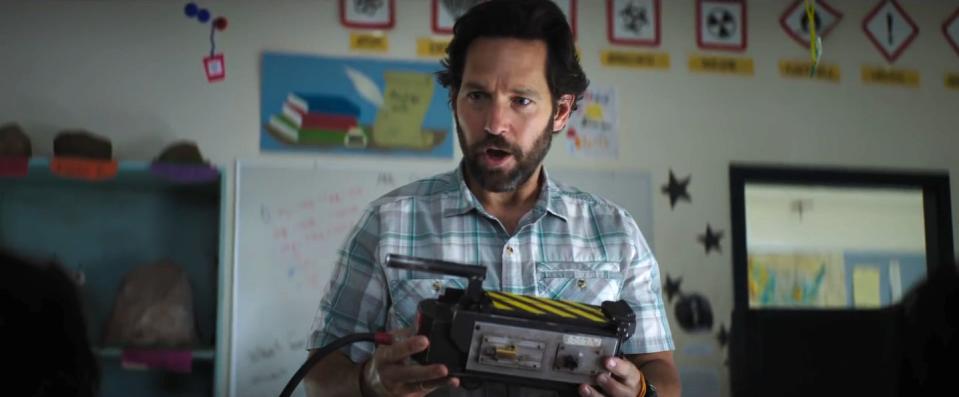
It's hard to wonder, then, if Jason Reitman was hampered by the deference he paid to the original and to his father, a theme that crops up in the movie, too. Afterlife is also haunted by ghosts: Ramis in particular.
Without giving anything away, though we can imagine you'll already know what's coming, the final beats are so transparently manipulative that even though they move you, it's against your will. As someone who cries a lot (particularly over subjects around the death of parents), it was impossible not to cry; but those tears weren't earned.
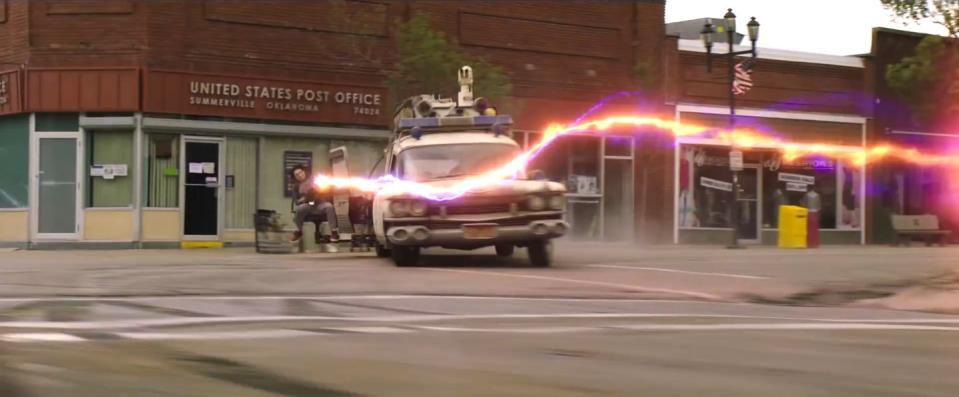
There was nothing beyond a good score and an over-exaggerated tug on the heartstrings that elicited tears, and despite a few falling, the overwhelming feeling was anger at being forced to experience this, and a slight smattering of disgust that it was happening at all. And much like that drunk relative, the film outstays its welcome — with two post-credit scenes, neither of which seem to mean anything at all for the future or the film that just transpired.
One can only hope that there have been enough Ghostbusters reboots now to let sleeping hell hounds lie. Just put the 1984 one on. It may be cheesy and the CGI may be old, but at least it knows what it is and will make you laugh.
Ghostbusters: Afterlife is out in cinemas on November 11, 2021.
You Might Also Like

 Yahoo News
Yahoo News 